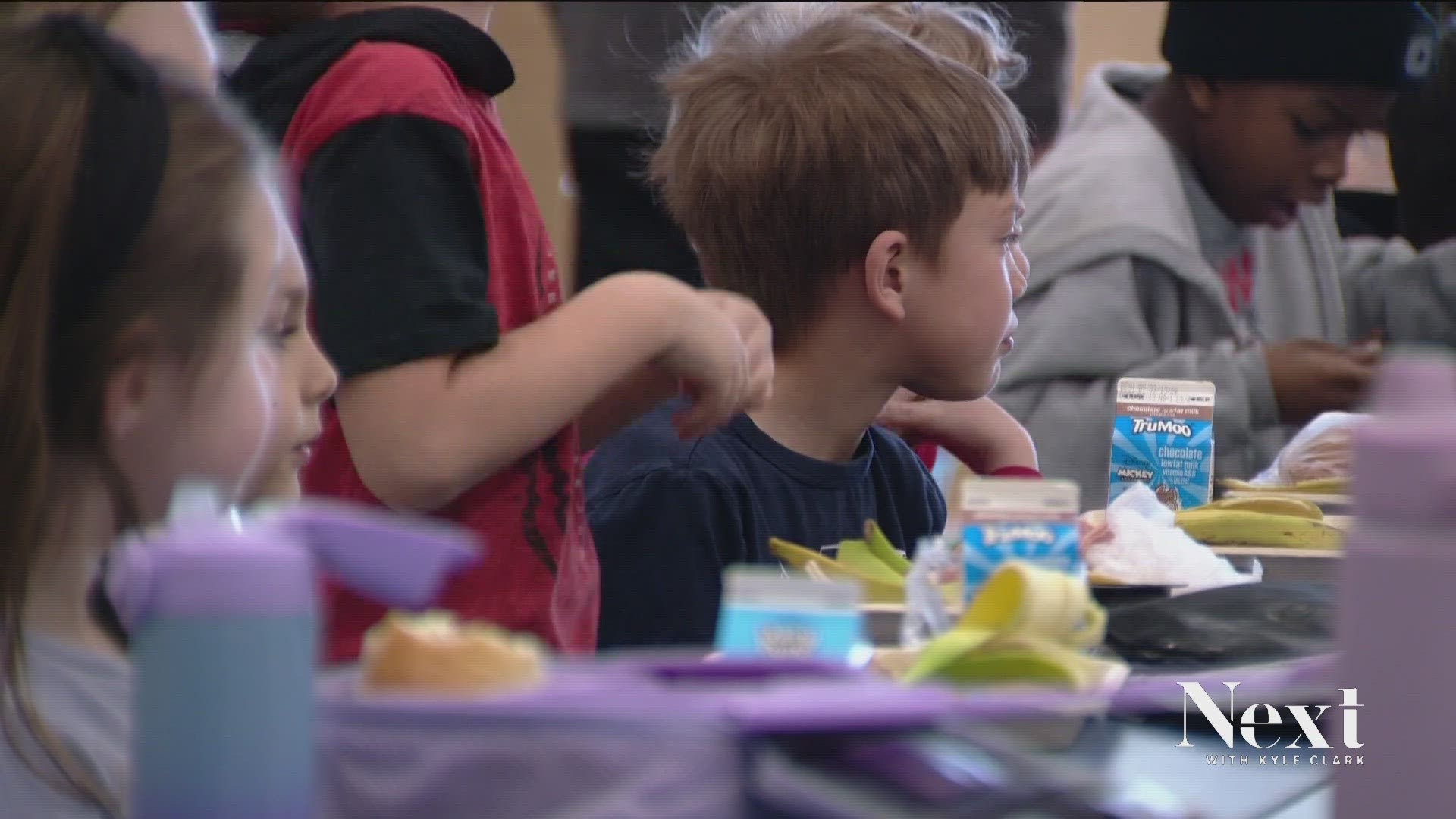DENVER — A record number of K-12 students are eating school meals because of a ballot issue voters approved in 2022.
Proposition FF promised free breakfast and lunch at school for all students paid for by higher taxes for households that make more than $300,000 a year.
There were other promises in Prop FF that may now be broken.
“Potentially, [the] shortfall this year, up to about $24 million. Next year, potential shortfall is up to $49 million,” said Brehan Riley, school nutrition director for the Colorado Department of Education.
Along with free school meals for all, Prop FF was supposed to provide grant programs to:
- Purchase Colorado grown food
- Increase wages for school meal employees
- Move toward a minimal reliance on processed products
“Those three programs are, about, a $22 million cost for next school year, and so that’s part of what the Joint Budget Committee is contemplating, maybe postponing those,” Riley said.
The six lawmakers that make up the legislative Joint Budget Committee will have to figure out how to continue to fund a voter-approved proposition without enough money.
The increased taxes on high income earners was projected to bring in $100 million for the 2023-24 fiscal year. That estimate is now $99 million. The money is there, but food and meal costs are higher than projected.
Cherry Creek School District now serves 35,000 meals a day, up from 25,000 meals a day last year when students had to pay for school lunches.
At Mountain Vista Elementary School on Thursday, students were offered teriyaki chicken, egg rolls, turkey, ham and cheese on a bun, fresh fruit and vegetables.
“I think a lot of people have no idea how far we’ve come,” said Kim Kilgore, Food Nutrition Services director for Cherry Creek School District.
With the popularity of free school meals, Cherry Creek Schools have had to make changes that are not funded by Prop FF.
“Our schools and our cafeterias were not built to serve the percentage of students that we are right now," Kilgore said. “Our kitchens and our coolers and freezers were not built to hold all the food that we need for a week, so that means we have to make extra deliveries.”
Because Prop FF was a statutory change and not a constitutional amendment, it can be changed by the state legislature.
“The core piece of it, though, making sure that kids can eat, that will never go away. I can’t see any legislature deciding to not fund that piece of it,” State Sen. Jeff Bridges, D-Greenwood Village, said.
Bridges was a sponsor of the bill that put Prop FF on the ballot in 2022, and he is one of the members of the Joint Budget Committee that will have to figure out where the money comes from to continue to, at least, provide free meals.
“We will make sure that students in this state get that meal,” Bridges said.
Instead of seeing the milk carton as half empty, the organization behind Prop FF is, instead, looking at how many milk cartons are being handed out.
“We heard a few weeks ago from the Colorado Department of Education that the updated projections indicated that the program was incredibly popular,” said Marc Jacobson, Hunger Free Colorado CEO.
Hunger Free Colorado was behind Prop FF, which made those extra promises that the state may not be able to keep.
“Costs were higher than expected, which means that there’s a need for the legislature to build a gap to make sure the program, and all of its key components, can be sustained going forward,” Jacobson said. “There are ways to make it work even with being a little budget conscious.”
On Friday, the Joint Budget Committee is expected to consider additional state funding to cover the 2023-24 shortfall. The three promises of local food, increased wages and getting away from processed foods was not supposed to take effect until 2024-25, which gives lawmakers extra time to figure out if it can be funded.
“I would feel disappointed that we put that in there not knowing that we could back that up,” Kilgore said.
More from Marshall Zelinger:
SUGGESTED VIDEOS: Next with Kyle Clark

